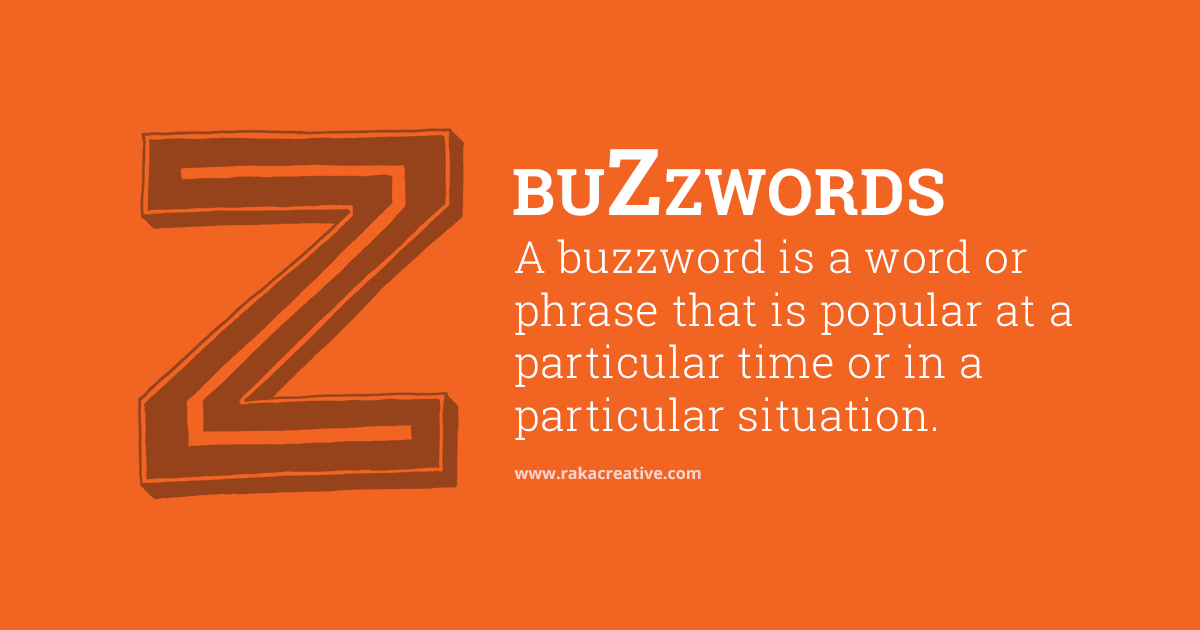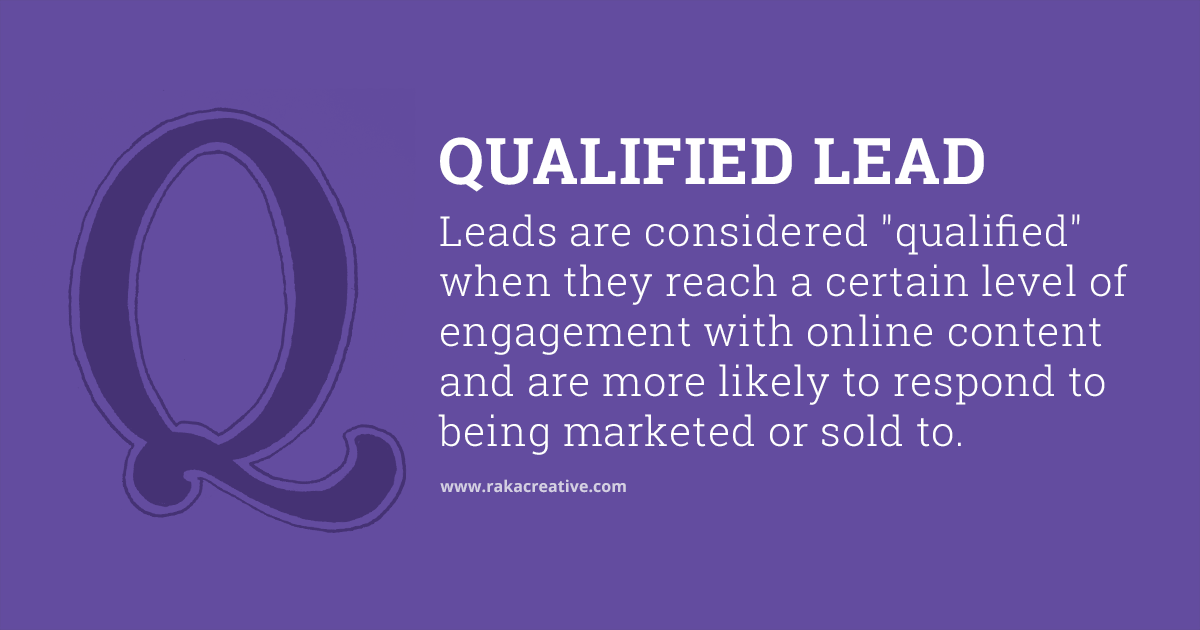Nowhere in Raka’s rules of the inbound marketing definitions does it say that the letter being highlighted has to be at the START of the word being defined. In fact, there are no rules for our inbound marketing definitions.
That said, let’s get down to business.
Tell me more
We’re not calling attention to buzzwords so you can add them to your marketing vocabulary, we’re writing about buzzwords so we can join together, as professionals, to end their flagrant use once and for all.
Buzzwords are bad. They’re empty and sometimes confusing. And where buzzwords can be found in all industries, some of those that plague marketing is especially obnoxious.
Some of the worst offenders:
- influencer marketing
- data-driven content
- storytelling
- sticky content
- low-hanging fruit
- paradigm shift
- brand identity
- actionable insights
Why buzzwords are NOT important to marketers
Don’t hang your head if you’ve used some of these buzzwords; sometimes it seems harder to avoid them.
People often use phrases such as “low-hanging fruit” when they’re trying to sound important or savvy. But why not just say “the simplest or easiest work?” Creating new phrases to make you or your company sound like you’re on the cutting edge is not worth confounding clients and readers. We should just say what we mean rather than trying to sound trendy.
There is an argument for using buzzwords as a form of shorthand. “Sticky content” is a certainly more convenient than writing “content that holds attention and gets people to spend longer periods of time on your site.” Is it truly concise if no one knows what you’re talking about, though?
We began to prize shorter sentences long before the average human attention span dipped below that of a goldfish. Still, clarity should never be sacrificed.
So what about the business jargon that becomes popular enough that everyone understands its meaning? (“Low-hanging fruit” is probably at that point by now.)
It’s annoying.
You can’t tell me you’ve never been in a meeting where some windbag spit up buzzwords every two minutes. They made the person sound insincere, right? Like all he was doing was regurgitating boilerplate language he read somewhere.
Don’t be the type of person who talks about using data analytics to yield actionable insights that can be used to cultivate a new brand identity for your company that could result in a paradigm shift. Whatever that means.
If you skimmed this post…
A buzzword is a word or phrase that is popular at a particular time or in a particular situation. They can result from giving a word a new meaning, or creating a whole new phrase.
Want to learn more awesome inbound marketing terms? Check out our Inbound Marketing Definitions page.






